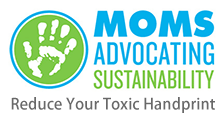
The Issue
- A genetically modified organism or “GMO” food is a plant or animal product that has had its DNA artificially altered to produce foreign compounds in that food.
- Over 80% of the conventional processed food sold in the United States contains GMO ingredients, including baby formula, cereal, ice cream, breads, salad dressing, and many other products.
- The majority of GMO crops are designed for one purpose: to withstand greater amounts of pesticides.
- According to USDA data, there has been an over 400 million pound increase in pesticide use over the last 16 years as a result of the introduction of genetically engineered crops.
- There have been no long term studies conducted on the safety of genetically engineered foods on humans. There is also no scientific consensus about the safety of GMO foods.
- There is no requirement in the US to label GMO foods, but polls show over 90% of Americas support it. More than 60 countries including member nations of the European Union, Russia, South Africa and China already label GMOs.
Our Position
- MOMAS is a member of the Californians for GE Food Labeling Coalition, which is a statewide coalition seeking the labeling of GMOs. As consumers, we have a right to know what is in our food!
- MOMAS also holds house parties and educational panels where we educate parents and caregivers about GMOs, suggest healthier alternatives & inspire action – with a goal towards eliminating GMOs from our food supply in the near future.
How to Avoid GMOs
- Buy Organic! Foods certified by the USDA as ‘organic’ cannot intentionally contain GMOs.
- Conventional items that may contain GMOs include: soy, corn, canola, cotton, sugar beets, alfalfa, Hawaiian papaya, yellow zucchini and summer squash.
- Look for the Non-GMO Project Verified label. This seal indicates compliance with the Non-GMO Project’s standard that requires producers to meet strict requirements for GMO testing, segregation and traceability.
Learn More and Take Action
To download a comprehensive summary of the GMO issue, click here. You can also learn more by visiting The Non-GMO Project and our Resource Page. Please visit www.LabelGMOs.org and sign up to receive updates or better yet, volunteer in your community.
